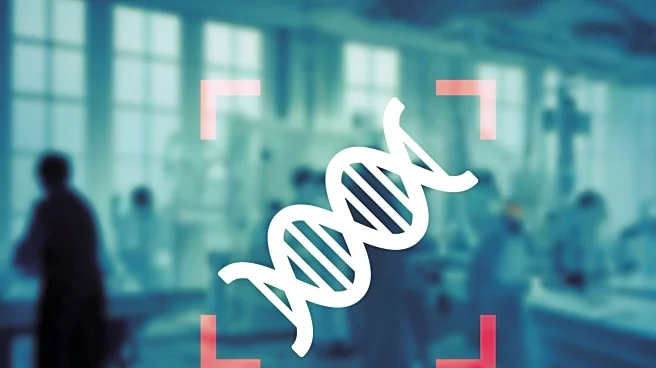What's Happening?
A recent study published in Nature reveals that the age at which individuals are diagnosed with autism may be influenced by their genetic makeup. The research indicates that children diagnosed with autism before the age of six often exhibit social and behavioral challenges early in life, while those diagnosed later are more likely to experience conditions such as ADHD and depression. The study, led by Varun Warrier from the University of Cambridge, suggests that genetic differences account for about 11% of the variation in diagnosis age. This challenges previous assumptions that later diagnoses are primarily due to milder symptoms or social factors like healthcare access.
Why It's Important?
Understanding the genetic factors influencing autism diagnosis can lead to more personalized support and improved diagnostic practices. This research highlights the complexity of autism, suggesting it may not be a single condition but rather a spectrum of related disorders. By identifying genetic profiles associated with different diagnosis ages, healthcare providers can better tailor interventions and support for individuals with autism. This could improve outcomes for those diagnosed later in life, who may face additional mental health challenges due to delayed diagnosis and support.
What's Next?
The findings could prompt further research into the genetic underpinnings of autism and how they relate to diagnosis and treatment. Researchers may explore how these genetic differences can be used to develop more effective diagnostic tools and personalized treatment plans. Additionally, there may be increased focus on ensuring equitable access to autism diagnosis and support services, particularly for those who may be diagnosed later due to genetic or social factors.










